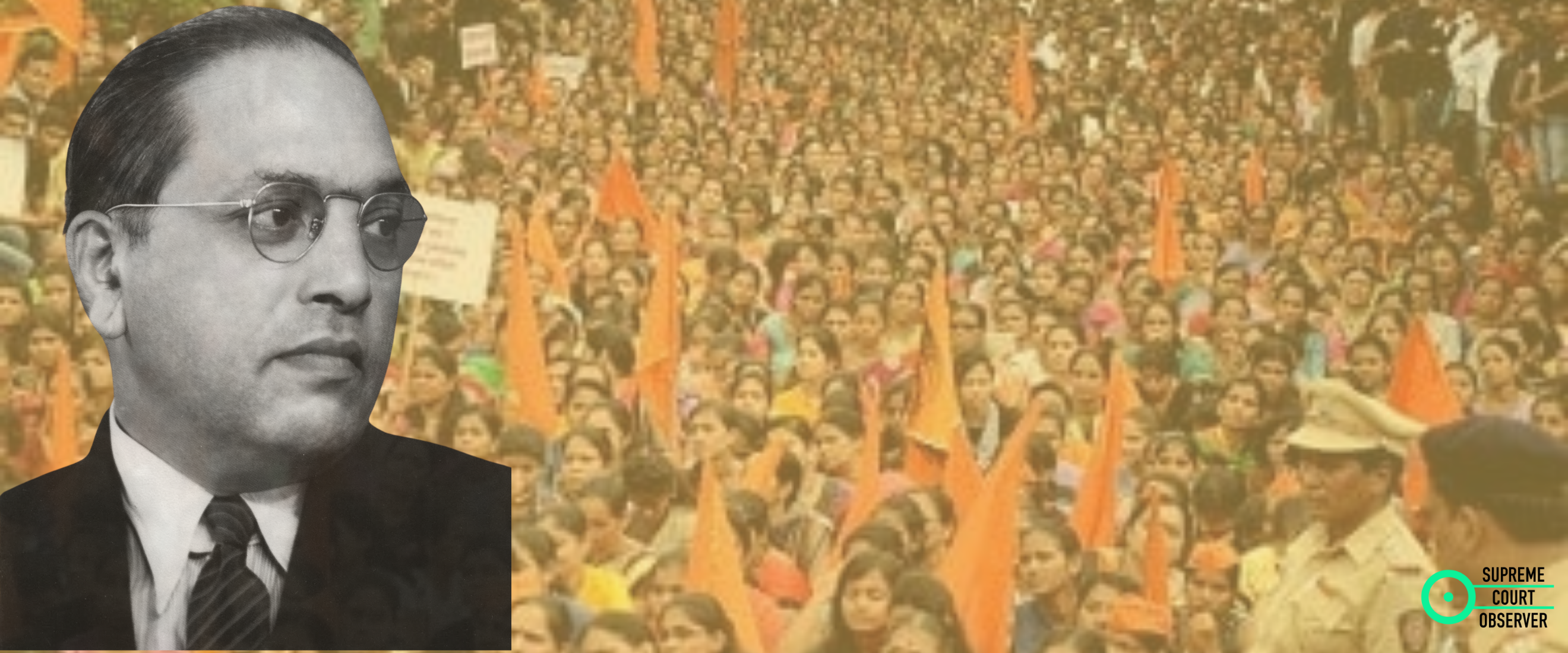Analysis
Ambedkar and the Quantum of Reservation
A speech by Ambedkar in the Constituent Assembly on the quantum of reservation played a critical role in the Maharashtra Reservation case.

On May 5th, the Supreme Court struck down the Maharashtra State Reservation for Socially and Educationally Backward Classes (SEBC) Act, 2018 that introduced reservation for Marathas in public employment and education. The Court declared the Act unconstitutional for exceeding the 50% ceiling limit on reservation in public employment and education put down in the Indra Sawhney judgement. This would limit the State (and the Centre) from passing laws that allow for reserving more than 50% of seats for backward classes in public employment and education.
In the Constituent Assembly, during the debate around Article 16 of the Constitution, some members argued against reservation by invoking the idea of equality of opportunity. Ambedkar agreed that equality of opportunity did have a role in thinking about entry to public employment, however he argued that while equality of opportunity was a great principle in theory, there must be a provision to facilitate the entry of those communities into public employment who have historically been denied the chance to do so. At the same time, Ambedkar cautioned that reservation for these communities must be confined to a minority of seats so that principle of equal opportunity would not be destroyed.
This speech by Ambedkar played a critical role in the Maharashtra Reservation case and was cited by the petitioners, respondents and the Supreme Court. Adv. Mukul Rohatgi, representing the Maharashtra Government argued in support of the SEBC Act. He said that Ambedkar’s speech indicated that reservation was not an exception to the rule of equal opportunity but an integral part of it. Therefore, the 50% limit put down in Indra Sawhney was baseless. Adv. Arvind Datar on the other hand, arguing for the Petitioners, felt that Ambedkar’s speech should be interpreted to mean that reservation more than 50% would violate the principle of equal opportunity.
The Court, invoking Ambedkar’s speech, took the view that reservation was not an exception but an integral aspect of equality of opportunity, a position of the Indra Sawhney judgment. However, it held that exceeding the 50% limit would compromise equality of opportunity.
Interestingly, there are States in India like Tamil Nadu which have passed legislation to provide reservation that exceed the 50% limit. The Court has kept mum and not given these States any directions to reduce the quantum of reservation. Would these State legislations be challenged in Court and face the same fate as Maharashtra’s SEBC Act? We know one thing for sure, if these laws end up getting challenged, once again Ambedkar’s speech would be invoked and read closely. The Maharashtra Reservation case reveals how the Constituent Assembly debates are viewed as a key resource by Courts and lawyers to make sense of and think through contemporary constitutional conflicts.
(First published on constitutionofindia.net on May 19th 2021.)
